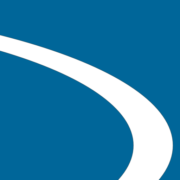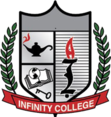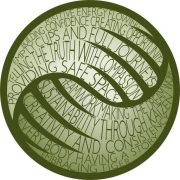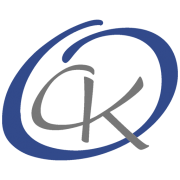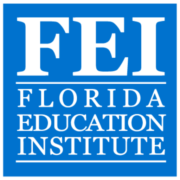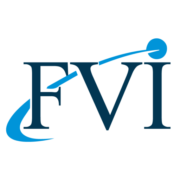| Type | Less than 2 year, Private |
|---|---|
| Business Model | Non Profit |
| Campus locale | Town: Fringe |
| Degrees offered | Undergraduate |
| Calendar system | Continuous |
| Student body size | Small |
|---|---|
| Student to faculty ratio | 10 to 1 |
| On-time graduation rate | 93% |
Located in Somerton, Arizona, Regional Center for Border Health is a private, non profit institution that offers undergraduate degrees. The college operates on a continuous calendar system, providing flexibility in scheduling.
One of the notable aspects of Regional Center for Border Health is its open admission policy. This means that all high school graduates and individuals who hold a GED qualification are eligible to apply for admission. This inclusive approach allows a wide range of students to pursue their higher education goals, regardless of their academic background.
Regional Center for Border Health is accredited by the Accrediting Bureau of Health Education Schools, ensuring that the institution meets certain standards of quality and effectiveness. This accreditation also allows students to transfer credits to other accredited institutions if they choose to continue their education elsewhere.
With a students-to-faculty ratio of 10-to-1, Regional Center for Border Health emphasizes small class sizes, fostering a supportive and interactive learning environment.
-
Accredited by: Accrediting Bureau of Health Education Schools
Admission
The institution does not have any selection criteria for enrollment. All high school graduates and GED certificate holders are eligible for admission.
Tuition & Fees
Nursing Assistant/Aide and Patient Care Assistant/Aide
| Program Length | 2 months |
| Tuition and Fees | $2,875 |
| Books and Supplies | $235 |
| Total Cost | $3,110 |
Phlebotomy Technician/Phlebotomist
| Program Length | 1 months |
| Tuition and Fees | $1,220 |
| Books and Supplies | $190 |
| Total Cost | $1,410 |
Similar schools that provide the same program:
Medical Insurance Coding Specialist/Coder
| Program Length | 3 months |
| Tuition and Fees | $4,576 |
| Books and Supplies | $564 |
| Total Cost | $5,140 |
Similar schools that provide the same program:
Culinary Arts and Related Services
| Program Length | 4 months |
| Tuition and Fees | $2,238 |
| Books and Supplies | $805 |
| Total Cost | $3,043 |
Home Health Aide/Home Attendant
| Program Length | 1 months |
| Tuition and Fees | $625 |
| Books and Supplies | $295 |
| Total Cost | $920 |
Average Net Price
The net price represents the amount of money students pay after receiving financial aid. In 2022, the average net price for first-year, full-time students at Regional Center for Border Health was $3,837. This amount varies among students due to the different levels of financial aid offered based on their family's financial status.
Financial aid includes federal, state, or local government grants and institutional grants and scholarships
Below is the average net price of Less than 2 year, private Non Profit colleges in Arizona and nationwide.
| Arizona's average | $14,790 |
|---|---|
| National average | $17,795 |
Tuition Plans
Tuition plans offered by Regional Center for Border Health during 2022 academic year.
-
Prepaid tuition planOffered
-
Guaranteed tuition planNot Offered
-
Tuition payment planOffered
-
Other alternative tuition planNot Offered
Financial Aid
Average Grant & Scholarships
In 2022, 53 of freshman students at Regional Center for Border Health received on average $3,643 in grant and scholarships from the college, the state and/or the federal government. Below is detail stats of the aid provided to full-time, freshman students.
Average Student Loans
In 2022, 1% of freshman students at Regional Center for Border Health received $3,262 (average) in federal student loan. Below is detail stats of all the loans provided to full-time, freshman students.
Academic Programs
Health Professions
Total number of students graduated under this category 214Nursing Assistant/Aide and Patient Care Assistant/Aide
Medical Office Assistant/Specialist
Phlebotomy Technician/Phlebotomist
Medical Insurance Coding Specialist/Coder
Home Health Aide/Home Attendant
Culinary and Personal Services
Total number of students graduated under this category 5Cooking and Related Culinary Arts
Outcome
Graduation Rate
Out of 255 students who enrolled in 2018 and after, 238 students graduated within the normal graduation time of their respective program and 238 students graduated late (within 150% of the normal time it takes to graduate).
93.3%
Transferred Out
Out of 255 students who enrolled in 2018 and after, 17 students transferred out of the school.
6.7%
Students Population
Gender Diversity
Based on the 2021-2022 data, the undergraduate student population at Regional Center for Border Health is greatly skewed towards women students, with 92.3% of undergraduate students being women and 7.7% being men. The total number of full-time, first-year undergraduate students is 65, with 60 women and 5 men.
- men 7.7% 5 students
- women 92.3% 60 students
Students Age Diversity
- 18-19 35% 23 students
- 20-21 25% 16 students
- 22-24 17% 11 students
- 25-29 12% 8 students
- 30-34 8% 5 students
- 35-39 2% 1 students
- 40-49 2% 1 students
Miscellaneous
Service Offerings
- Remedial services
- Academic/career counseling services
- Employment services for students
Educational Offerings
- Academic
- Occupational
- Postbaccalaureate Recreational or avocational education
Special Learning Opportunities
- Weekend/evening classes
Veteran Services
- Yellow Ribbon Program (officially known as Post-9/11 GI Bill, Yellow Ribbon Program)



